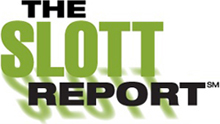 Happy Friday! So, let's say you are leaving or have left your employer. What happens to your retirement plan funds? There are options other than taking a taxable distribution of your retirement account balance.
Happy Friday! So, let's say you are leaving or have left your employer. What happens to your retirement plan funds? There are options other than taking a taxable distribution of your retirement account balance.
Taking a check payable to yourself
The employer is required to take 20% mandatory income tax withholding on any taxable (pre-tax) funds included in this type of payment. Once you receive the check, you have 60 days from that date to roll the funds over to another employer plan or to an IRA. You can also make up the 20% withheld with other funds you have and put those in the IRA also within the same 60 days. If you do not make up the withheld amount, it will be included in your taxable income for the year and will be subject to the 10% early distribution penalty if you are under the age of 59 ½. If you do make up the withheld amount, you will get back any overpayment of income tax when you file your tax return for the year.
Taking a check payable to the new retirement plan
This is called a direct rollover and is not a taxable event. You can have the check made payable to the IRA custodian or to the new employer plan. When you receive the check, you have it deposited in your new account. This is a much better way to move your employer plan funds. There is no 20% tax withholding, no 60-day limit, no waiting for a tax refund, no 10% penalty.
Do a Roth conversion
You can move your employer plan funds to a Roth IRA as either a 60-day rollover or as a direct rollover. This will be a taxable event. The amount converted will be included in your income for the year. There is no 10% early distribution penalty on a Roth conversion. A Roth conversion can be recharacterized to an IRA up to October 15th of the year after the conversion if you change your mind.
Do an in-plan Roth conversion
If the employer plan has a Roth feature and allows for conversions, you can move your plan funds to the Roth account in your plan. This is a taxable event as noted above. Unlike a conversion to a Roth IRA, there is NO recharacterization feature in an employer Roth account.
As you can see, there are options other than taking the money and running. Leaving the funds in a retirement account allows them to continue growing and compounding on either a tax-deferred (IRA or plan account) or tax-free (Roth account) basis. These funds can mean the difference between a comfortable retirement and one where you can only pay for necessities. A financial advisor to help you with these choices could mean the difference between success and failure in funding your future.
-By Beverly DeVeny and Jared Trexler









0 comments:
Post a Comment